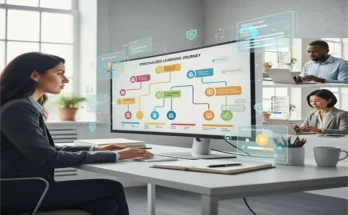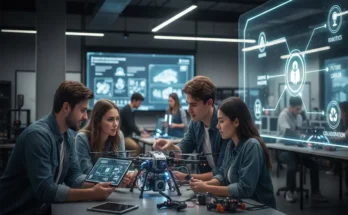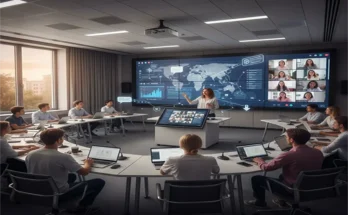In a rapidly evolving world driven by technological advancements and societal changes, the concept of lifelong learning is more crucial than ever before. Lifelong learning refers to the ongoing process of acquiring knowledge, skills, and competencies throughout one’s life, beyond formal education. In this article, we will delve into the significance of lifelong learning in shaping the future of education and preparing individuals for success in an ever-changing landscape.
Adaptability in the Face of Change
One of the primary reasons why lifelong learning is essential in future education is its ability to equip individuals with the skills and mindset needed to adapt to constant change. In a world where new technologies emerge, industries evolve, and global challenges arise, the capacity to learn continuously and update one’s knowledge becomes a valuable asset. Lifelong learners are better positioned to navigate uncertainties, seize opportunities, and thrive in dynamic environments.
Career Resilience and Growth
Lifelong learning plays a pivotal role in ensuring career resilience and fostering professional growth. As job markets transform and professions shift, individuals who engage in continuous learning have a competitive advantage. By acquiring new skills, staying abreast of industry trends, and pursuing professional development opportunities, lifelong learners can enhance their employability, explore new career paths, and progress in their chosen fields.
Cultivating Curiosity and Innovation
An essential aspect of lifelong learning is its ability to cultivate curiosity and stimulate innovation. In a future where creativity, critical thinking, and problem-solving skills are highly valued, individuals who embrace lifelong learning are more likely to think innovatively, generate novel ideas, and contribute to societal progress. Lifelong learners are encouraged to question the status quo, explore diverse perspectives, and envision innovative solutions to complex challenges.
Personal Enrichment and Well-Being
Beyond professional development, lifelong learning also contributes to personal enrichment and overall well-being. Engaging in learning activities that align with one’s interests, passions, and values can bring a sense of fulfillment, satisfaction, and purpose. Lifelong learners often experience a heightened sense of self-awareness, intellectual stimulation, and emotional resilience, leading to increased levels of happiness and life satisfaction.
Collaboration and Knowledge Sharing
Lifelong learning fosters a culture of collaboration, knowledge sharing, and continuous improvement within communities and organizations. By promoting a culture of learning and knowledge exchange, institutions can leverage the collective expertise of individuals, encourage collaboration across disciplines, and drive innovation at scale. Lifelong learners are more likely to engage in collaborative projects, share insights with peers, and contribute to a culture of lifelong learning within their communities.
As we envision the future of education, it is clear that lifelong learning will play a central role in preparing individuals for the complexities and opportunities that lie ahead. By embracing a mindset of continuous learning, individuals can adapt to change, advance their careers, cultivate innovation, enhance personal well-being, and foster collaboration within their communities. In a world where the only constant is change, lifelong learning serves as a powerful tool for empowerment, growth, and success in an ever-evolving landscape.





